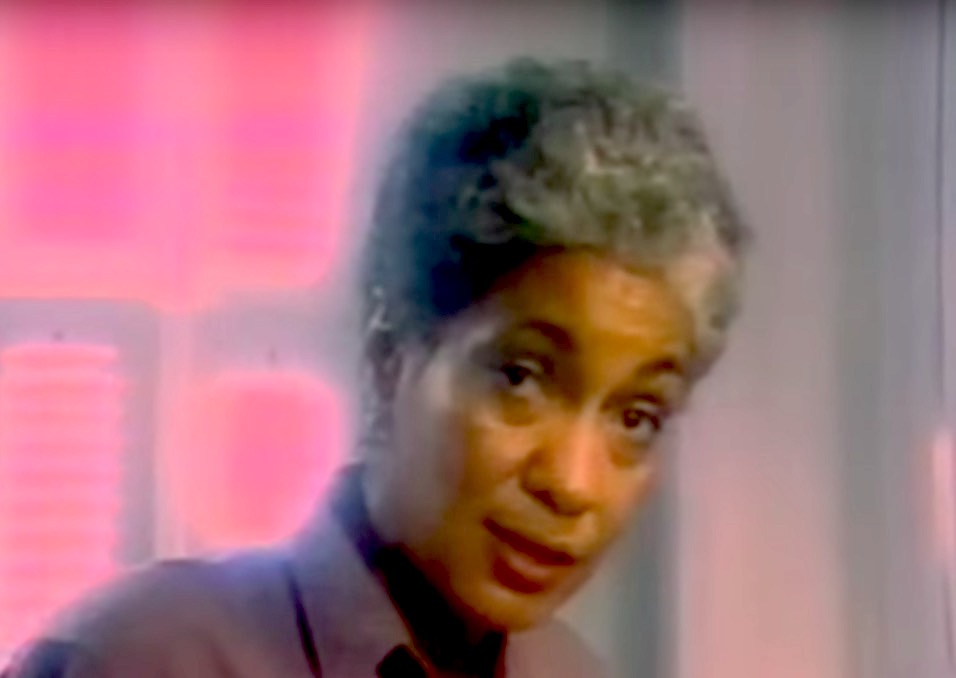Black History Month 2018: The Universal Poet, June Jordan

Happy Black History Month! For each of the 28 days of February, we at The Mary Sue will have a post about a black woman you should know about—some you may have heard of, some a little bit more obscure, and some fictional who still deserve a lot of love.
Day Seven: June Jordan
I told you guys I wouldn’t just focus on slavery and tragedy. Intersectionality is important for almost every identity. Many of us do not exist in only one sphere of the social bubble, so I wanted to make sure to highlight not just stories of straight black women, but queer black women as well.
Born the only child of Jamaican immigrants in 1936, June Jordan grew up in Harlem, New York, in a working-class family. Jordan had a complicated relationship with her father, who instilled in her a love of literature—she began writing poetry of her own at seven—but he was also a traditional West Indian parent. He was quick to beat her for the slightest misstep and call her names, which she explored in her 2001 memoir, Soldier: A Poet’s Childhood.
In the 1986 essay “For My American Family,” she explored the experience of being raised by black immigrant parents who projected their future hopes and ambitions onto their children, meanwhile dealing with the harsh realities of American blackness, even in a place like New York. In Soldier: A Poet’s Childhood, Jordan recalls her father telling her “There was a war on against colored people, I had to become a soldier.” While grateful to America for allowing him to escape poverty and seek a better life for his family, her father was conscious of the struggles his daughter would face and encouraged her to fight. This is typical of most children of immigrant parents. There is a strong desire to push your children forward and be strong in the face of oppression, but also feeling like you have to be hard on them first, so they will be prepared for the real pains of life.
Jordan’s educational experience became one of her main motivators for social activism, because she found herself “completely immersed in a white universe” by attending predominantly white schools, but she was also able to construct and develop her identity as a black American and a writer. (Which was pretty much my own experience in predominantly white schools in higher education)
In 1953, Jordan enrolled at Barnard College. In her 1981 book Civil Wars, she described her experience at Barnard College as such: “No one ever presented me with a single Black author, poet, historian, personage, or idea for that matter. Nor was I ever assigned a single woman to study as a thinker, or writer, or poet, or life force. Nothing that I learned, here, lessened my feeling of pain or confusion and bitterness as related to my origins: my street, my family, my friends. Nothing showed me how I might try to alter the political and economic realities underlying our Black condition in white America.” She and Black Panther’s Killmonger would have a lot to talk about.
Jordan married a white Columbia student named Michael Meyer in 1955, but they later divorced after ten years of marriage, leaving Jordan to raise their son alone.
After the Harlem Riots of 1964, Jordan found that she was starting to hate all white people. She wrote,
“…it came to me that this condition, if it lasted, would mean that I had lost the point: not to resemble my enemies, not to dwarf my world, not to lose my willingness and ability to love.”
This personal revelation caused her to write not with hatred, but with love. Soon after, she began to self-identify as bisexual, despite getting a lot of pushback from other academics at the time. Jordan wrote poems, essays, children’s literature, and more, integrating her own experience into all of them, offering commentary that was meant to uplift the reader but also give them the language to use themselves.
At Berkeley, she founded the “Poetry for the People” program in 1991 to inspire and empower students to use poetry “as a means of artistic expression.”
Reflecting on how she began with the concept of the program, Jordan said, “I did not wake up one morning ablaze with a coherent vision of Poetry for the People! The natural intermingling of my ideas and my observations as an educator, a poet, and the African-American daughter of poorly documented immigrants did not lead me to any limiting ideological perspectives or resolve. Poetry for the People is the arduous and happy outcome of practical, day-by-day, classroom failure and success.”
For the rest of her life, Jordan used her writing and teaching to provide a voice for others highlighting important issues around race, gender, and sexuality. Jordan died of breast cancer at her home in Berkeley, California in 2002, aged 65.
“In political journalism that cuts like razors, in essays that blast the darkness of confusion with relentless light; in poetry that looks as closely into lilac buds as into death’s mouth … she has comforted, explained, described, wrestled with, taught and made us laugh out loud before we wept … I am talking about a span of forty years of tireless activism coupled with and fueled by flawless art.” -Toni Morrison on June Jordan
Recommended Reading:
Directed by Desire: The Collected Poems of June Jordan
Some of Us Did Not Die: New and Selected Essays (New and and Selected Essays)
Civil Wars
Soldier: A Poet’s Childhood
(image: Youtube/Screengrab)
Want more stories like this? Become a subscriber and support the site!
—The Mary Sue has a strict comment policy that forbids, but is not limited to, personal insults toward anyone, hate speech, and trolling.—
Have a tip we should know? tips@themarysue.com